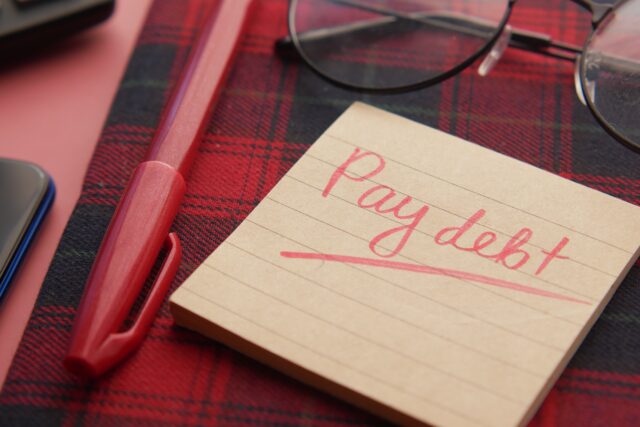
Debt can be annoying at best and overwhelming at worst. Whether it seems as though you’re just throwing away a couple of hundred dollars each month for no good reason, or you are actually struggling to balance your monthly payments with other expenses, owing money is never a good feeling. At the same time, it’s common to feel as though you’re on a treadmill of payments that you’ll never be able to step off of. The good news is that you absolutely can pay what you owe and take a big step toward greater financial stability.
Why Do It
You might wonder whether you should bother at all, especially if you have a manageable minimum payment each month. You might tell yourself that at the very worst, you will just keep paying that minimum amount until the debt is finally gone or you are. However, if you want to stay ahead financially there are a few things wrong with this line of reasoning. First, you are almost certainly paying a huge amount in interest with this approach, possibly even more than the original amount of the debt. Second, it constrains your ability to be financially independent. Finally, it will weaken the total value of your overall estate eventually, meaning that if you want to leave things to your family after your death, they will only get assets after creditors have been paid. In short, carrying a debt for any longer than you have to is a bad idea for many reasons.
Tracking Your Spending
In order to pay off the money that you owe, you need to do at least one of the following things and possibly both: spend less or make more money. Tracking your spending for a few months can give you a good sense of where your money is going, which can tell you which of these things you should focus on. You can do this tracking using your own system, or you can use an app. If you find that you’re already frugal and barely making ends meet, you’ll need to work on ways to increase your income. This might involve looking for a higher paying job, renting out a room in your home, or picking up part-time work or side gigs. If you find that you’re wasting a lot of the money you spend, you’ll need to think about making a budget and reducing your expenses.
Reducing Your Expenses
Even if you think there’s no room in your budget for spending less, you may be surprised at what you can cut if you look carefully. You may be able to save by looking for personalized rates in one place for auto, home and life insurance. That same place might even help you reduce your existing debt by refinancing student loans. You can sometimes cut credit card interest rates by rolling your balance onto a different card. Learning to cook if you don’t already know how and meal planning along with making a grocery list can help you save on food. If you have a family, spending less needs to be a joint effort.
Making a Plan
Once you’ve freed up some money through savings, found a way to increase your income or both, it’s time to get aggressive about paying off what you owe. Your mortgage can be an exception to this since there are often good reasons, such as tax breaks, to pay this off more slowly. Otherwise, if you have multiple debts, you should choose one to put most of your money toward while keeping your minimum payment going on the others. Figure out when you’ll have it paid off with what you’re putting toward it, and decide on a reward you’ll give yourself at that time–one that won’t drive you further into debt. When you do pay off the first one, take the total you were paying on it and add it to the minimum payment you were making on the next one. Keep doing this with subsequent debts, which means that the amount that you have to make monthly payments increases as each one is paid off. Be sure to reward yourself at the end as well. It’s true that the financial freedom you get from being debt-free is a reward in itself, but you also deserve something extra for sticking to the program and succeeding.


































